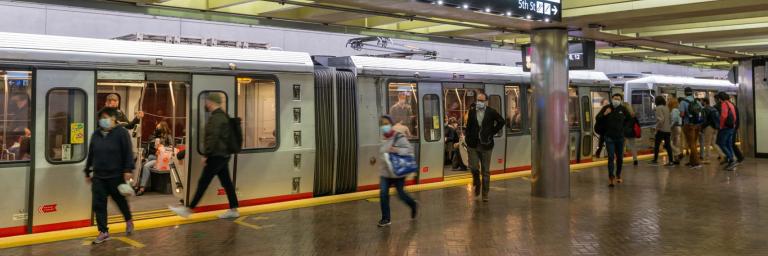The Covid-19 pandemic exacerbated existing challenges of declining ridership and financial instability and also presented unprecedented challenges of passenger safety and shifted mobility patterns. With decreased public transit ridership and operating revenues, the transit industry must identify ways to restore trust, increase ridership and revenues, and facilitate the long-term well-being of transportation systems in order to deliver the public service of mobility in coming decades.
The SFMTA was awarded a Federal Transit Administration (FTA) national competitive grant to develop a National Transit Adaptation Strategy. The Agency, with its partners at Institute for the Future (IFTF), The Massachusetts Institute of Technology (MIT), Clear Channel Outdoor, and MIG, is developing a set of data-based tools and marketing material that any U.S. transit agency may implement to rebuild post-pandemic confidence in public transit and improve ridership.
In October of 2024, members of the NTAS project team from SFMTA shared a slide presentation of NTAS research and findings at the 2024 Mpact Conference in Philadelphia, PA.
The National Transit Adaptation Strategy project is divided into four Phases:
- Phase I: a futures report that identifies possible futures in order to help transit agencies set a path toward the most probable future scenario.
- Phase II: a ridership persona report which identifies four public transit user personas that provide the industry with key market segments to manage their systems and support operational efficiency.
- Phase III: a marketing campaign and messaging package which transit agencies can replicate and use to target specific rider personas given anticipated future scenarios to increase system ridership.
- Phase IV: a ridership data model which transit agencies can use to model potential ridership scenarios based on various intervention strategies.
To learn more and to read additional report documentation from each NTAS project phase, please click the icons below.




